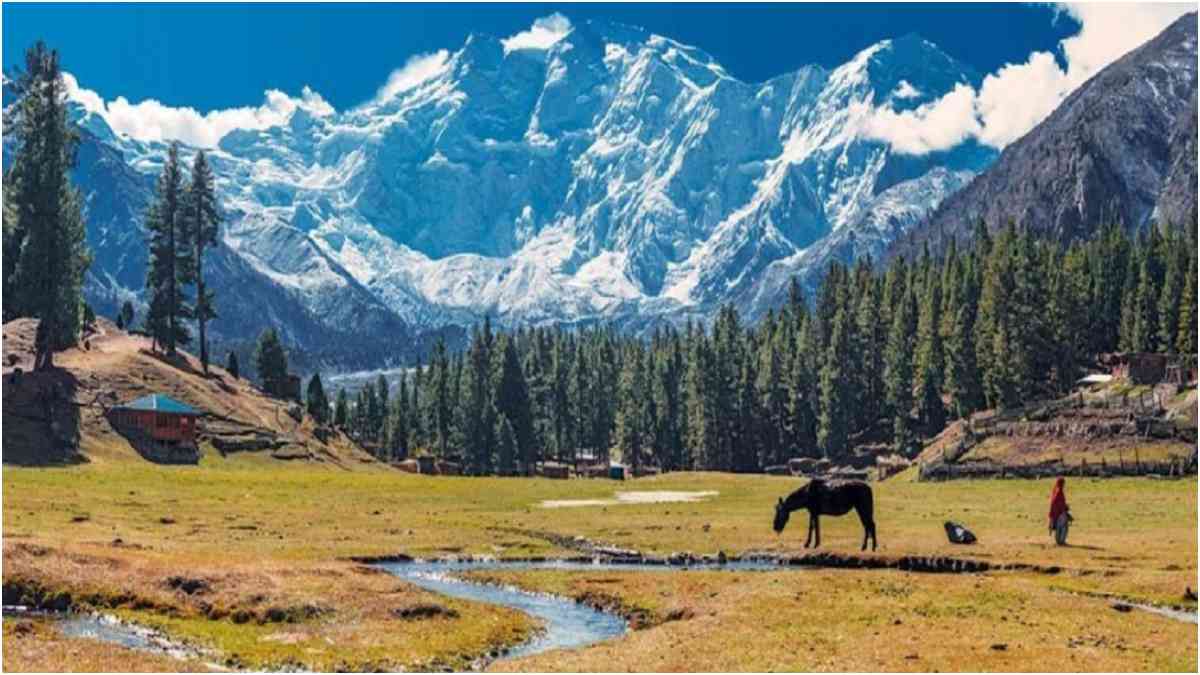With the announcement of Pakistan holding polls on November 15 in the Gilgit-Baltistan province, the debates regarding the possession of the disputed area is once again at its peak.
India on Tuesday expressed its opposition to Pakistan’s plans to hold an election in the disputed Gilgit-Baltistan region and dismissed the neighbouring country’s decision to claim the disputed area as its fifth province. India has repeatedly told Islamabad that it cannot make material changes in areas under its illegal occupation.
On Pakistani government’s plan to hold elections in the Gilgit-Baltistan region India stated that Jammu and Kashmir, including Gilgit-Baltistan, are an integral part of India. Pakistan has ‘no locus standi on territories illegally and forcibly occupied it’. The statement was issued by India in response to Pakistan’s announcement of holding elections in the Gilgit-Baltistan legislative assembly scheduled for November 15.
This decision by Islamabad is being considered as the first step towards declaring the region a full-fledged province of their country, following which the Government of Pakistan will move towards making the region a full-fledged province.
India registered its strong protest at the United Nations against the announcement made by Pakistan which India termed as “cosmetic exercises” meant to camouflage Pakistan’s illegal occupation and human rights violations in the region.
India’s take on the announcement:
India condemned the move by Pakistan and strongly protested against the announcement terming the move as grave human rights violations, exploitation, and denial of freedom to the people residing in Pakistan occupied territories for the past seven decades. India also called upon Pakistan to immediately vacate all areas under its illegal occupation.
The government of India has also completely rejected the recent actions such as the so-called “Gilgit-Baltistan (Elections and Caretaker Government) Amendment Order 2020” and continued attempts by the Pakistan establishment to bring material changes in areas under its illegal and forcible occupation.
The Indian external affairs ministry said in a statement, “The entire union territories of Jammu and Kashmir and Ladakh, including the areas of so-called Gilgit and Baltistan, are an integral part of India by virtue of its accession in 1947.”
What is Gilgit-Baltistan’s issue?
Last week Supreme court of Pakistan issued notices to the Advocate General of Gilgit-Baltistan, directing him to amend the Gilgit-Baltistan Order-2018 and ordered to establish a caretaker government there. Accepting a plea of the Pakistani government, a seven-member bench of Pakistan’s Supreme Court ordered that the Gilgit-Baltistan Order-2018 be amended so that the upcoming general elections can be held by September and an interim caretaker government be set up in the meantime.
Despite being controlled administratively from Islamabad since 1947, Gilgit-Baltistan continues to remain a disputed region between India and Pakistan and hence, has not been officially integrated into Pakistan.
The importance of Gilgit-Baltistan:
The Gilgit-Baltistan region is situated at the confluence of three great mountain ranges – the Himalayas, Karakoram, and the Hindu Kush; and therefore, is a vital geostrategic site. It is a major province that provides Pakistan direct access to China and becomes an important region for the China-Pakistan Economic Corridor.
Gilgit-Baltistan, in the current geostrategic alignment, cuts India from the mineral and energy-rich markets of Central Asian countries including Uzbekistan, Turkmenistan, and Kazakhstan, as well as Afghanistan. Further, the region is also important to India because of the presence of Glaciers and snow that accounts for water sources in the area.
What is Gilgit-Baltistan Order-2018?
In May 2018, the Gilgit-Baltistan Order-2018 was passed, as an attempt by the Pakistan government towards incorporating the disputed region as its fifth province. Under this arrangement, the disputed area was given a province-like status with the appointment of a chief minister and governor for self-rule. Thus, constitutionally it still remained out of Pakistan. However, India has always rejected these moves.
There was nothing new with the move as Pakistan has been changing the status of Gilgit-Baltistan for many years now. India sees it as a bilateral issue, and therefore never took up the matter with any international body.
Is Pakistan’s move influenced by the Chinese government?
Fearing the development of the Indian military base at strategic Campbell Bay in Andaman and Nicobar Islands, in 2015, and aggressive US posturing in the South China sea, the Chinese government found an alternative for its supply needs in Pakistan-based China-Pakistan Economic Corridor (CPEC) as a natural choice.
This dependence of China on Pakistan for the corridor was beneficial to China especially in a situation where Pakistan is totally isolated from the world over terror issues and due to the Chinese debt trap. China is considering CPEC as a lifeline and therefore is pumping more money into the project. The area of Gilgit-Baltistan is important to China as the province effectively provides Pakistan with direct land access to China through Xinjiang via the Karakoram Highway and China in no way can afford to lose this disputed region between India and Pakistan.

